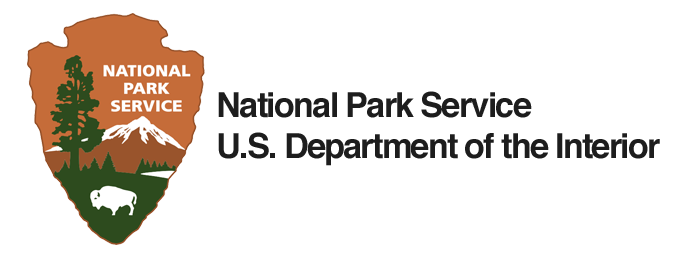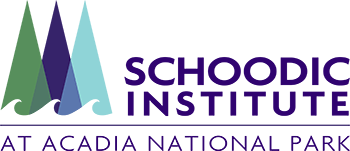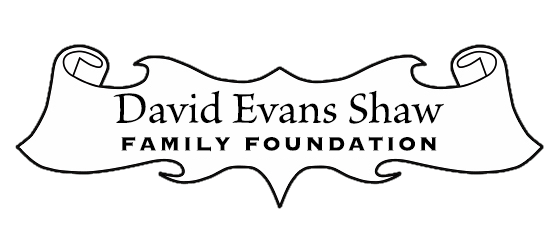A lot of science happens in national parks. Park officials grant more than 3,000 research permits each year (NPS research permit system), and parks have an extensive tradition of scientific inquiry (Parks in Science History). Yet the 300 million+ visitors who enjoy our national parks are often unaware of ongoing research (#ParkScience).
Parks DO tell lots of science stories, but we could tell a whole lot more. Different kinds of people are responsible for science storytelling in national parks—park interpreters, park resource managers, scientists, and often other partners like friends groups and other nonprofits—and all face obstacles in communicating science. Park interpreters may have a hard time finding information on active research and keeping track of scientific findings, which are mostly published in technical reports and scientific journals. Park managers are often focused on the most urgent priorities for protecting natural resources, and may not have the time to help tell important science stories. Scientists tend to have a range of communication skills and experience, and are often unfamiliar with the policies, procedures, and processes of working with the National Park Service. They may also wonder if it is worth it to push to tell the stories of their science.
How do we overcome these obstacles? Why and how should scientists communicate? How do we make science a part of every visitor’s experience?
Second Century Stewardship workshops convene teams of researchers and park staff with teachers, communication scholars, journalists, and partners to build and strengthen relationships, learn from one another, jointly identify audiences and key messages, and develop plans for communication products and programs that align with National Park Service mission and strategies.
Communication workshop goals:
- Researchers and park staff have knowledge of public attitudes and understanding of science, barriers to communicating park science, and approaches to communication.
- Second Century Stewardship fellows and other park researchers develop communication skills by creating and implementing communication plans.
- Communication about #ParkScience strengthens public understanding of the importance of science for parks and society.
Citizen Science workshop goals:
- Deepen understanding of “citizen science.”
- Broaden the community of people who consider themselves citizen science practitioners.
- Increase public engagement in science at national parks and other protected areas.
Upcoming Workshops
Making the language of place more inclusive: examples from U.S. national parks, Inclusive Science Communication Symposium, 29 September 2023
Communicating Science in Acadia 2024, tba
Past Workshops
Together, let’s create a more inclusive language of ecology, Ecological Society of America, 10 August 2023
Communicating Science in Acadia 2023, online via Zoom, 12 June 2023
Communicating the Science of the Dragonfly Mercury Project, 17-20 April 2023, Campus at Lake Austin
2022 Second Century Stewardship science communication training, 13-15 June 2022, Schoodic Institute at Acadia National Park
U.S. House of Representatives Natural Resources Committee Staff, December 2021
Boston Harbor Islands Science Communication Workshop, September 2021
2020-2021 Second Century Stewardship Fellows science communication training, May-June 2021
Citizen Science Workshop: Focus on Pollinators, February 24-April 14, 2021
Working with the media to communicate your science, 29 July 2020, North American Congress for Conservation Biology
Working with the media to communicate your science, 3-6 August 2020, Ecological Society of America
Climate Communication Strategies to Connect and Inspire, 5 & 12 May 2020, Maine Land Trust Network
Citizen Science & Cultural Resources, 3-5 March 2020, Homestead, Florida
Science Communication & Engagement in Acadia, 27-28 February 2020, Schoodic Institute (2 days)
Science Communication & Interpretation in the National Parks, November 18-20, 2019, Monterey, California (2+ days) – A science communication workshop with teams of researchers, resource managers, and interpretive staff from five Pacific Region parks.
Ecological Society of America, 2019, Louisville, Kentucky (half-day) – We led workshops for researchers on improving communication, incorporating citizen science into research projects, and how to work with citizen science data. (Citizen science workshops in collaboration with the Citizen Science Association.) Second Century Stewardship Fellows presented the session, “Inclusion is an Imperative in U.S. National Parks.”
SCS Communications Workshop, 2019, Acadia National Park, Maine (2.5 days) – This workshop convened 2018 and 2019 Second Century Stewardship Fellows, National Park Service and Schoodic Institute staff, Acadia Teacher Fellows, and partners for 2.5 days of communications training, practice, and planning.
Acadia Science Symposium, 2018, Acadia National Park, Maine – The symposium highlighted science occurring in Acadia, with special sessions on undergraduate research in the park, the science behind the transportation plan, and science for the next century of stewardship in national parks.
Strengthening Your Citizen Science Workshops, 2018, Acadia National Park, Maine, Rocky Mountain National Park, Colorado, Golden Gate National Recreation Area, California – These workshops brought together the staff of nonprofits, universities, and national parks to improve the design and outcomes of citizen science projects in national parks and other conservation areas across the country.
Weekly Citizen Science trainings, Acadia National Park, Maine – At these workshops attendees learned how to participate in citizen science programs (eBird, iNaturalist, and Nature’s Notebook) that provide critical biodiversity and phenology data to scientists and resource managers across the world, including those at national parks.
Ecological Society of America Annual Meeting, 2018, New Orleans, Louisiana – At this conference, we led a workshop on incorporating citizen science into research projects (in collaboration with the Citizen Science Association). A Second Century Stewardship Fellow, Chris Nadeau, also organized a special session exploring ways that scientists could better work with resource managers so that their research better informed climate adaptation decisions.
AAAS Annual Meeting, 2018, Austin, Texas – We held three Second Century Stewardship symposia at this conference: Natural and cultural resource stewardship; New scientific insights and audiences; Applying conservation genetics and genomics to wildlife and fisheries management; Overcoming challenges to using environmental big data for conservation.
SCS Communications Workshop, 2017, Acadia National Park, Maine – This workshop brought together the first four Second Century Stewardship Fellows, science communication experts, and staff from national parks and key partners to learn techniques—such as video, social media, public presentations, and media interviews—to better communicate science to target audiences.
Acadia Science Symposium, 2016, Acadia National Park, Maine – This symposium highlighted the centennial of Acadia National Park and featured leaders from the natural resource, cultural resource, and interpretation and education directorates of the National Park Service discussing their visions for the next century of science and communication in national parks.



